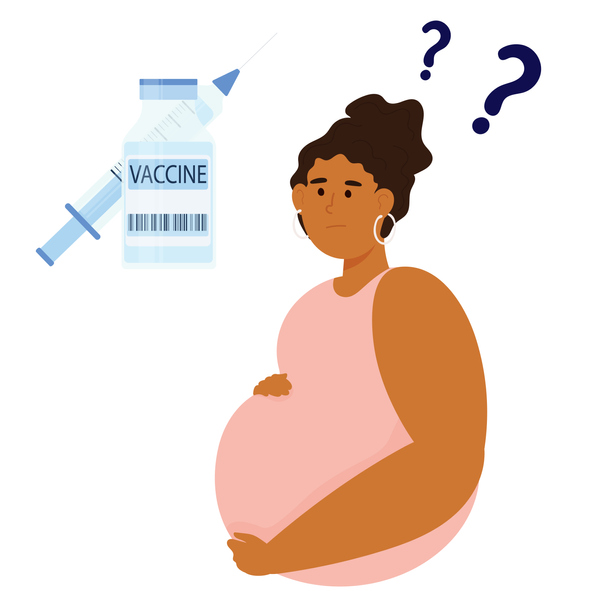Vaccine hesitancy is a global issue but particularly immunization among pregnant women is a controversial issue because of myths regarding vaccination safety for the mother and baby.
As new bivalent Covid-19 vaccines are rolling out again nationwide, mothers should be equipped with the latest knowledge to make the right decisions for the health of themselves and their babies.

Maternal immunization was introduced to reduce neonatal morbidities and aims to boost the concentration of maternal antibodies that can be transferred across the placenta to directly protect infants until they can respond to active immunization. This is necessary as infant vaccination usually begins between the first and second month after birth, leaving them unprotected during the gestational period and the first few months.
Korea Biomedical Review spoke to some mothers concerning this issue.
One Colombian mother living in Seoul, who wanted to be anonymous, said that she did her own research and realised it was beneficial to receive the Covid-19 vaccine to protect her baby.
“I am glad that I received the vaccine before I caught Covid while pregnant. Thankfully, my symptoms were not severe and my baby was also safe.”
She received not only a Covid-19 vaccine but influenza and tetanus vaccines during her pregnancy.
However, another mother, 27, had opposing views on the matter and opted to not receive them. She remarked, “I did not receive the vaccine as it had now been released and I was a bit unsure of the Covid-19 vaccine effects for me and my baby.”
She thought the safer thing was to reduce her contact points by staying home to safeguard her baby during the pandemic.
Regarding other vaccines, she said that she was not informed by her doctor about these vaccines and only proceeded with the regular course of vaccinations for her child after birth.
According to the World Health Organization (WHO), the risk of getting vaccinated during pregnancy is usually concerned with live attenuated vaccines (LAV). “Vaccines recommended for mothers don’t have active virus components and are nowadays comprised of mRNA, inactivated virus, viral vectors or subunit proteins, none of which can multiply in the body.” explained WHO Chief Scientist, Dr. Swaminathan.
Meanwhile, the CDC in the U.S. states that while live vaccines pose a theoretical risk to the fetus, there has been no significant adverse effects for vaccinating pregnant women with inactivated virus, bacterial vaccines or toxoids and so these particular vaccines are usually contraindicated during pregnancy.
Which vaccines to get, and which not to?
In this regard, vaccines which are generally not recommended during pregnancy include human papillomavirus (HPV) vaccine, measles, mumps, and rubella (MMR) vaccine, the live influenza vaccine, the varicella (chicken pox) vaccine and certain travel vaccines like yellow fever, typhoid fever, and Japanese encephalitis except when ruled necessary by a doctor.
As recommended by the CDC, flu, Tdap (tetanus, diptheria and pertussis) and Covid-19 vaccines are recommended during pregnancy to confer protection to your baby. Other factors to consider are optimal timing of vaccination during gestation for safety and high antibody concentration transfer which should be communicated through doctor prenatal visits.
For example, the flu vaccine just like the Covid-19 vaccine can be safely administered in any trimester, whilst the Tdap vaccine for pertussis, tetanus and diptheria is recommended from week 27 to 36 of pregnancy.
Just last week, the U.S. FDA approved the Boostrix vaccine for use during the third trimester of pregnancy to prevent whooping cough also known as pertussis, to further strengthen the protection of infants younger than 2 months of age.
At a recent vaccinology seminar in Korea, Flor Munoz, Associate Professor of Pediatrics and Infectious Diseases at Baylor College of Medicine, said, “More maternal and infant safety assessments are critical as babies are at higher risk from infections in the new born period.” However, in the same breath, she acknowledged the implementation challenges regarding public awareness, education, resources, financial support and policies to name a few.
Currently, the majority of research efforts regarding maternal-infant vaccines are focused on developing respiratory syncytial virus (RSV) and group B strep (GBS) vaccines. As pregnant women are usually excluded from Covid-19 vaccine clinical trials, this further fans the flames of uncertainty for some pregnant women.
In this respect, WHO established the global alignment of immunization safety assessment in pregnancy (GAIA) project to actively monitor the safety of vaccines and immunization in pregnancy programs. This group aims to improve the quality of outcome data from clinical vaccine trials in pregnant women with a specific focus on the needs and requirements for safety monitoring in low- and middle-income countries (LMICs).

